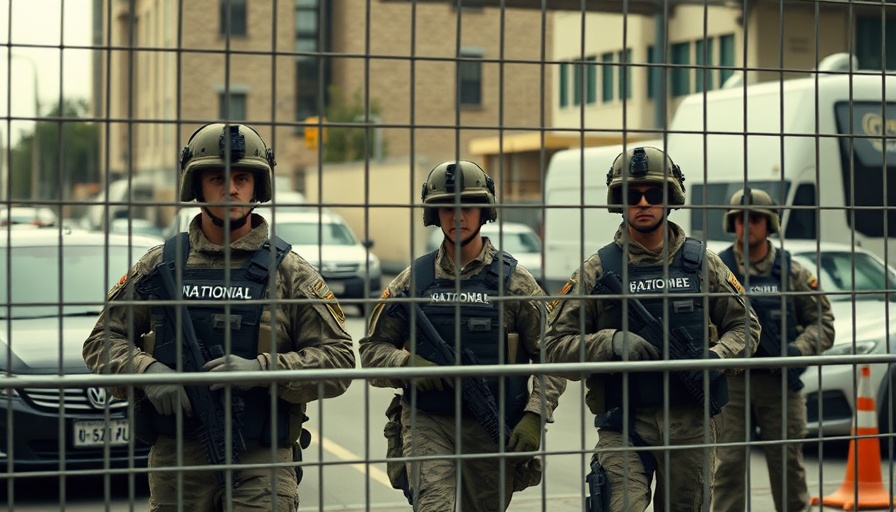
Judge’s Decision: A Crucial Moment for National Guard Deployment
A federal judge has stepped in to temporarily block President Trump's controversial plan to deploy National Guard troops to Chicago, a decision that has sparked significant political discourse. With Illinois Governor J.B. Pritzker and Chicago city officials challenging the legality of this deployment, this ruling could reshape the dynamics of federal and state law enforcement interactions.
Understanding the Legal Arguments
The heart of the matter lies in the arguments presented by various stakeholders. The state of Illinois argues that Trump's actions exceed his authority, invoking the historical Posse Comitatus Act, which limits military involvement in domestic law enforcement. Christopher Wells, attorney for Illinois, pointedly remarked that this situation presented a constitutional crisis.
On the opposing side, the Trump administration maintains that the deployment is necessary due to rising crime rates and increasing threats against federal law enforcement agents, claiming a clear need for military support amidst what they describe as 'tragic lawlessness' in the city.
The Broader Implications of the Ruling
This case isn't just about Chicago. The ruling highlights the ongoing clash between state and federal authorities, particularly in Democrat-led states where federal initiatives are often met with resistance. Illinois' lawsuit is part of a broader trend, as California and Oregon have recently secured similar rulings that prevent federal troop deployments in their jurisdictions. This could set a precedent, giving states more power to challenge federal authority.
Link to National Issues: Immigration and Crime
The deployment was framed within the context of Trump's aggressive immigration policies. The White House has pointed out that troops are necessary to protect federal officers enforcing immigration laws. However, critics, including political leaders in Illinois, assert that this militarization of local law enforcement exacerbates tensions and undermines community trust.
Illinois' legal actions coincide with rising concerns about civil rights and the implications of federal overreach in managing local crime. The debate holds significant relevance, especially considering historical contexts of military overreaction in urban settings.
Potential Outcomes and Next Steps
Moving forward, the Trump administration may pursue various avenues, possibly appealing the ruling or seeking to invoke the Insurrection Act, which would allow the use of active-duty military troops in situations deemed insurrectionary. Such a move could ignite even more substantial protests and legal challenges.
As Illinois grapples with the implications, questions remain about how this might impact future interactions between the federal government and states under Democratic leadership. The resolution of this case might define the landscape for these dynamics for years to come.
A Call to Stay Informed
This situation is fluid and has the potential for significant repercussions for civil liberties and state sovereignty. Keeping up with the latest developments is essential as this legal battle unfolds. Engaging with local discussions, participating in government advocacy, and remaining aware of how these national policies impact local communities can empower citizens.
For continued updates on the National Guard situation and other federal actions impacting American cities, engage in support networks and newsletters that specialize in political developments.
 Add Row
Add Row  Add
Add 




Write A Comment